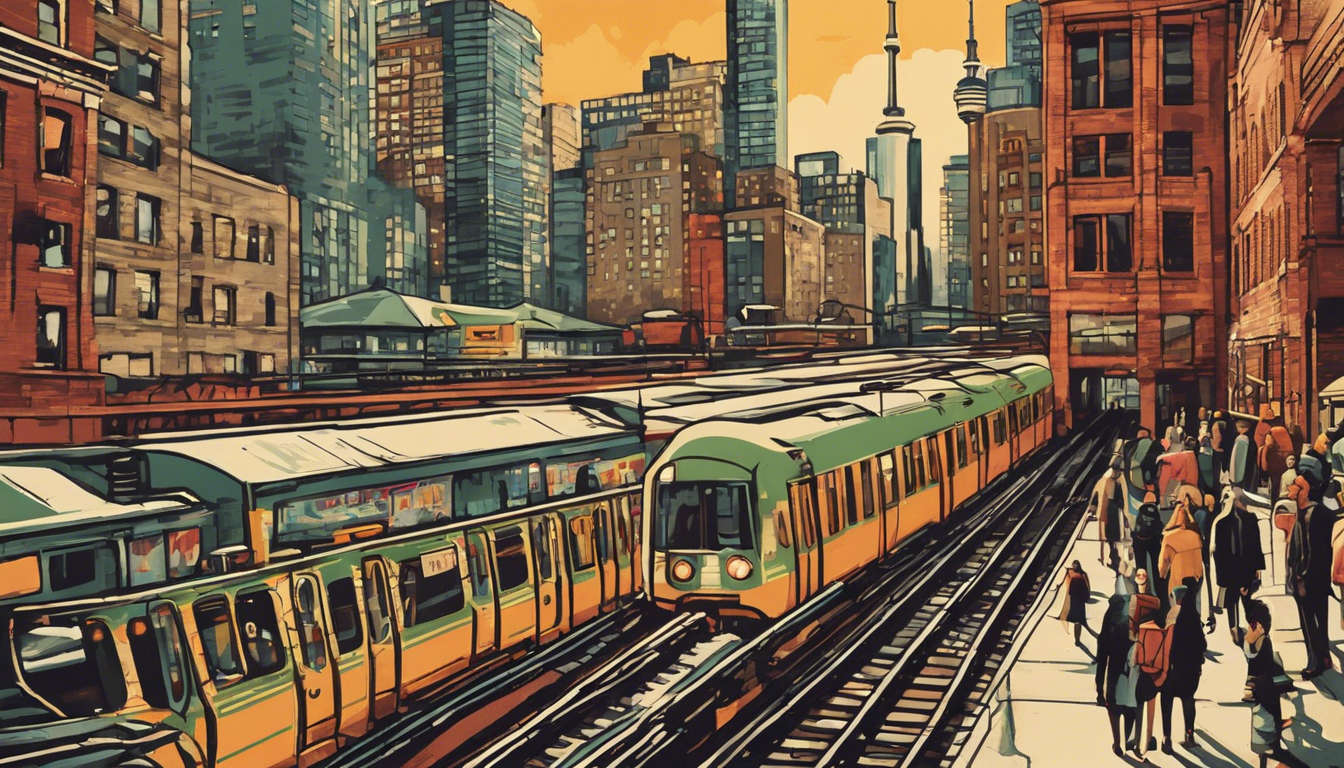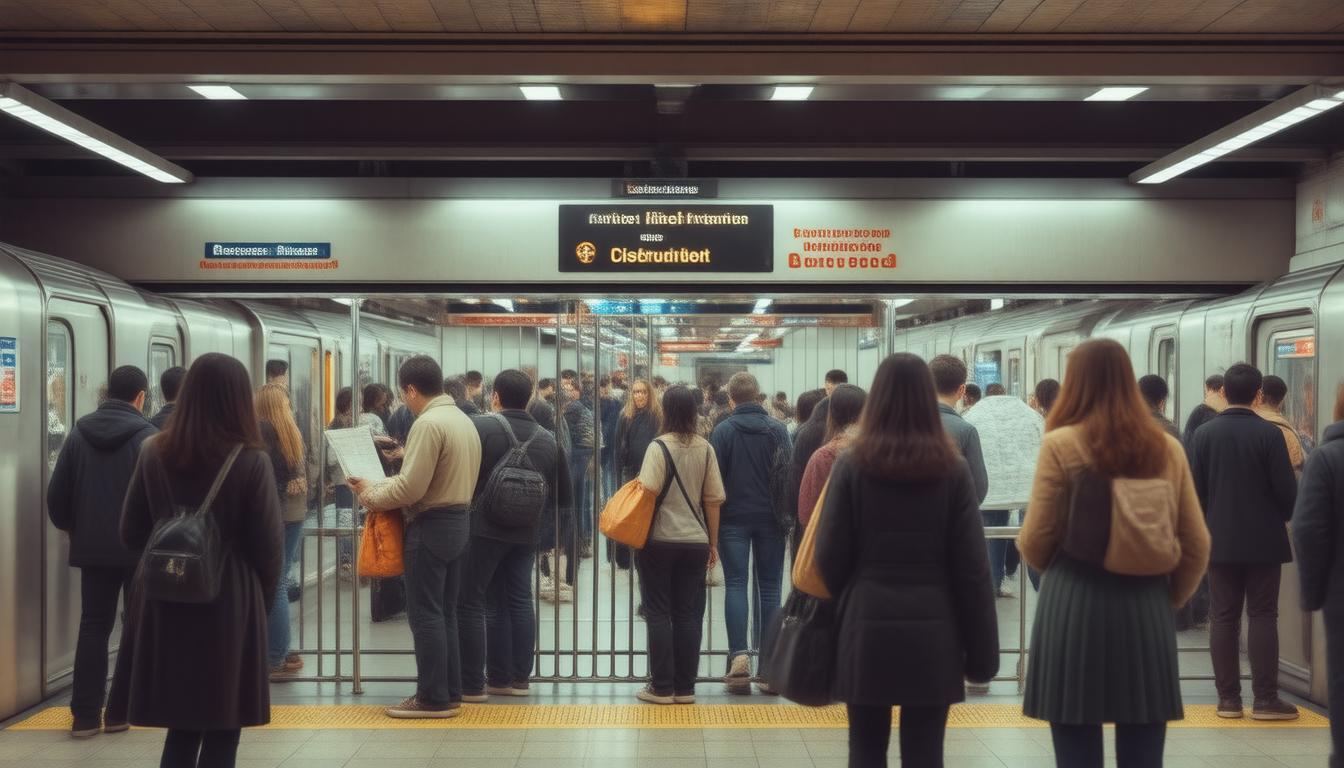The Toronto Transit Commission (TTC) is at the forefront of a transformative journey with the recent announcement of a landmark $
1.2 billion investment from the Canada Public Transit Fund. This substantial financial boost signals a renewed commitment to upgrading Toronto’s aging subway infrastructure, ultimately enhancing the daily commute for millions of residents. With the combined contributions from the City of Toronto and the Province of Ontario, this initiative reaches an impressive total of $2.3 billion, earmarked primarily for the procurement of 55 new subway cars to replace the outdated trains currently operating on Line
2. As the existing fleet of trains surpasses 30 years in age and relies on increasingly demanding maintenance schedules for safe operation, this initiative is not just a financial investment; it is a vital step toward fostering a more efficient and reliable public transit system.
With insights from key figures like Deputy Prime Minister Chrystia Freeland and Transportation Minister Prabmeet Sarkaria, who emphasize the collaborative effort to bolster Toronto’s transit framework, it becomes clear that this funding is both a solution to immediate concerns and a strategic move to address the city’s long-term growth. Advocacy groups such as TTCriders have applauded this ambitious plan, underlining the pressing need for modernization. Mayor Olivia Chow further reinforced the significance of these funds, which also target persistent issues like subway slow zones, impacting operational efficiency. As part of a broader New Deal designed to inject further investments into public transit, this funding marks the dawn of a new era for Toronto’s transportation system.
Key Takeaways
- The TTC is receiving $1.2 billion for subway upgrades, marking a major investment in public transit.
- This funding will allow the purchase of 55 new subway cars to replace outdated trains on Line
2. - The initiative is part of a larger New Deal aimed at enhancing public transit infrastructure across Toronto.
Overview of the Funding and Its Impact
The recent announcement of a substantial $1.2 billion investment by the Canada Public Transit Fund marks a transformative moment for the Toronto Transit Commission (TTC), as it embarks on a critical infrastructure upgrade aimed at enhancing urban transit efficiency. Matched by equal financial support from both the City of Toronto and the Province of Ontario, this funding brings the total investment to an impressive $2.3 billion. A cornerstone of this initiative is the procurement of 55 new subway cars designed to replace the aging and increasingly unreliable Line 2 trains, which have been in circulation for over 30 years. These aging units not only pose safety concerns due to their maintenance demands—estimated at an alarming additional cost of $1.6 billion—but also significantly hinder the functionality of the transit system. Deputy Prime Minister Chrystia Freeland underscored the importance of modernized public transit as a catalyst for accommodating the city’s ongoing growth, while Transportation Minister Prabmeet Sarkaria praised the cooperative endeavor among various governmental tiers to elevate Toronto’s standing as Canada’s economic powerhouse. Echoing these sentiments, TTCriders, an advocacy group, expressed optimism regarding the increased reliability of the subway system. Mayor Olivia Chow also conveyed gratitude for the federal investment, emphasizing that the funding would help tackle persistent challenges within the subway system, such as slow zones that impact overall transport efficiency. This funding initiative is part of a broader New Deal strategy, aimed at securing further investments that promise to revolutionize public transit infrastructure throughout Toronto.
Future Prospects for Toronto’s Transit System
In addition to replacing outdated subway cars, the TTC plans to deploy this significant funding toward comprehensive upgrades across its entire transit network. These improvements will likely encompass enhancements in safety features, digital signaling technology, and the expansion of accessibility options for all riders. As Toronto continues to grow, the modernization of public transit becomes increasingly critical not only for daily commuters but also for the city’s overall economic vitality. Investments in transit infrastructure are expected to reduce congestion, shorten travel times, and ultimately foster a more sustainable urban environment. Experts advocate for additional long-term planning to integrate emerging transit technologies and practices that will further enhance user experience, reduce our carbon footprint, and promote public transportation as a viable alternative to personal vehicles, shaping a more connected metropolis.






